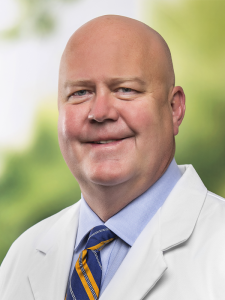It’s a disorder that impacts one out of 10 women, and yet, many may not know they have it – Polycystic Ovary Syndrome, or PCOS. September is a month designated to raise awareness for this disorder, which happens when a woman’s ovaries produce an abnormal amount of male sex hormones.

Women suffering from PCOS may experience symptoms ranging from weight gain to severe acne and irregular menstrual cycles. All of these are things some women might shrug off as standalone issues that can be a common problem found in many otherwise healthy women. This is why PCOS can go undiagnosed for years, even though it usually appears when a girl begins puberty.
If you are experiencing any of these symptoms, it’s so important to discuss them with your health care provider right away.
“What I tell people in general is there is not an exact test to diagnose someone with PCOS. It is a more of a clinical diagnosis based off a combination of symptoms and blood work results,” Dr. Todd Lantz, MD, of Bon Secours Upstate OBGYN, shares.
The exact cause of PCOS is unknown, and there is no cure. However, its symptoms can be managed. In fact, early diagnosis and treatment can reduce the risk of long-term complications.
Dr. Lantz adds, “this condition is often associated with insulin resistance, which increases a woman’s risk of developing gestational diabetes or just diabetes not related to pregnancy. It falls into the category of metabolic syndrome, which if left untreated, can potentially lead to an increased risk of diabetes, heart disease and hypertension later in life. There can also be an increased risk of uterine and endometrial cancer. So, it’s a significant condition and while there’s no cure, treating the symptoms is very important for long-term health.”
While PCOS is one of the most common causes of female infertility, Dr. Lantz says having this disorder does not mean you can’t get pregnant. Studies have shown a low carb diet along with exercise have been successful in managing this disorder. If you’ve been diagnosed with PCOS, your health care provider will have other treatment suggestions, too.
“The most common thing I hear from patients is ‘I was told I could never get pregnant.’ However, with the treatment options available, you can get the woman to ovulate and pregnancy is often very successful,” Dr. Lantz says.
As a woman, the most important thing is to know your body and share any issues you’re having with your health care provider. They can help determine what’s normal and what can be addressed to help you live a healthier life.
Learn more about the women’s health services we provide at Bon Secours.





